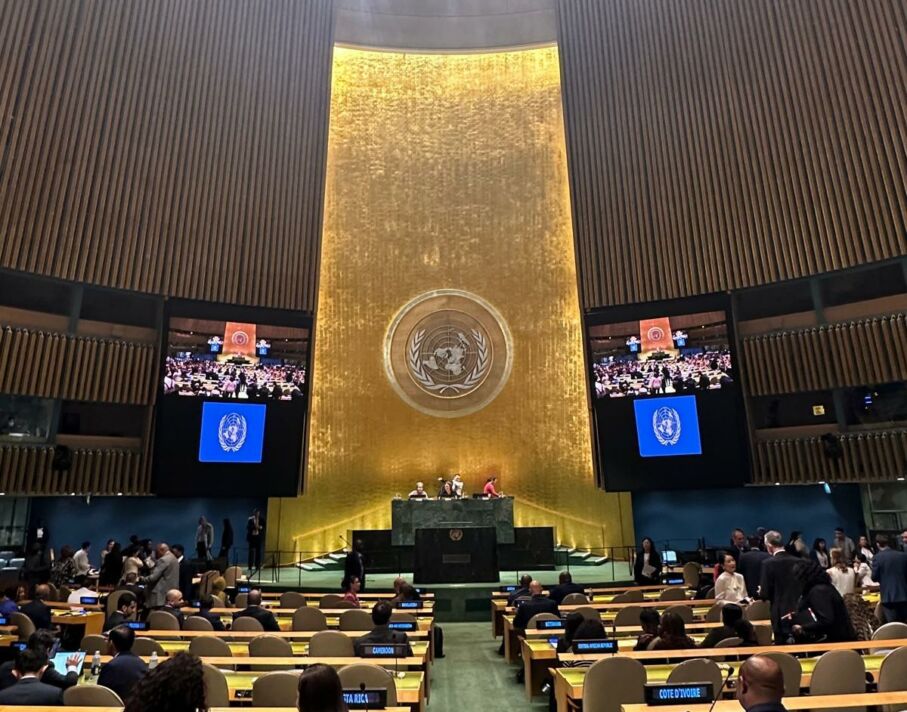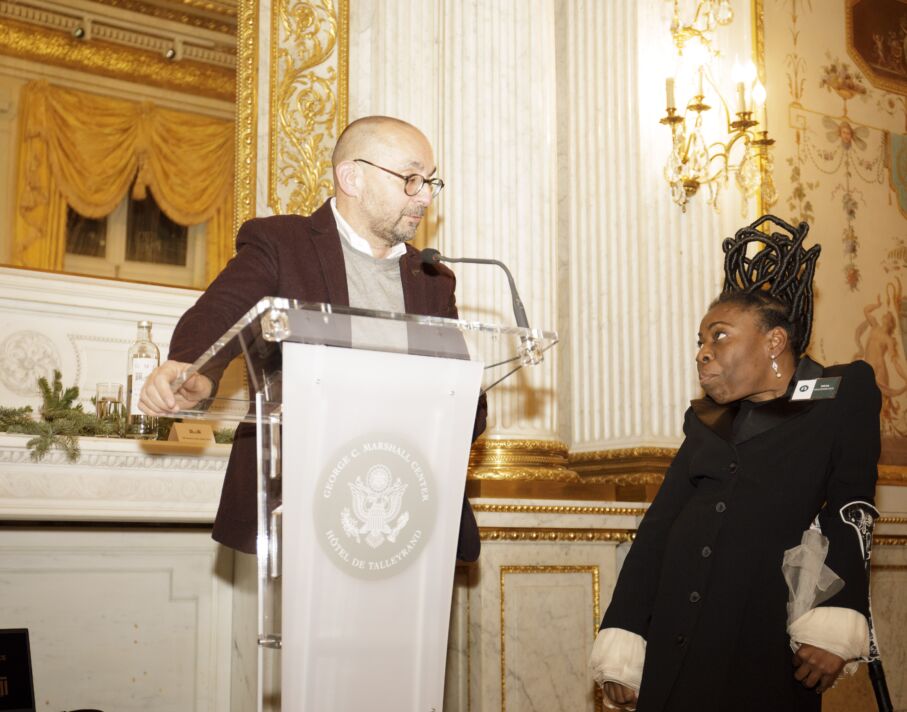As an ambassador for the European Commission's "Together for Rights" campaign, I present this op-ed as a call to action: it is time to open the spheres of power to people with disabilities. This is more than a matter of rights; it is an essential condition for building a truly inclusive Europe firmly focused on the future.
On this International Day of Persons with Disabilities, it is essential to shine a spotlight on a major but often neglected issue: enabling people with disabilities to play an active and influential role in decision-making spheres—political, economic, or social.
Leadership in this context is not just about holding positions; it is about influencing decisions, shaping strategies, and contributing fully to building a fair and sustainable society. This year’s theme, “Amplifying the Leadership of People with Disabilities for an Inclusive and Sustainable Future,” underscores the urgency of taking action.
Underrepresented leadership, insufficient results
Existing data reveals a troubling reality: the presence of people with disabilities in positions of power remains marginal. In France, between 2020 and 2024, only one person with a disability was reportedly elected to the Senate, three to the National Assembly, four to departmental councils, and 67 to municipal councils. In the United Kingdom, there are six disabled representatives in the Scottish Parliament, one in the Welsh Assembly, and eight in Westminster. At the European level, only 2% of leaders identify as having a disability.
The labor market paints an equally grim picture: the employment rate for people with disabilities in Europe has stagnated at 50.8% since 2014, far below the 75% for non-disabled individuals. Moreover, approximately 800,000 European citizens with disabilities are excluded from the democratic process due to persistent barriers, such as inaccessible documents, unsuitable infrastructure, or legal restrictions for those under guardianship.
These figures highlight the failure of European policies implemented over the past decade. Despite declared strategies, structural barriers remain pervasive: entrenched stereotypes, insufficient funding, lack of harmonized data, and inadequate infrastructure. In France, only 8% of people with disabilities hold managerial positions, compared to 18% of non-disabled individuals. The situation is even more alarming in countries like Germany (6%) and the Netherlands (5%). Even Nordic countries, often seen as role models, struggle to achieve 10%.
Without reliable data or shared indicators at the European level, how can we measure progress or prioritize efforts? And without investments in accessibility—polling stations, workplaces, or transportation—how can people with disabilities fully participate in public and economic life?
Shifting paradigms: Beyond promises, unlocking talent
This marginalization is not due to a lack of competence but rather to persistent prejudices and a lack of political will. An Odoxa study reveals that 74% of Europeans believe people with disabilities face greater obstacles in leadership roles, while 53% perceive them as difficult to integrate into the workplace. These stereotypes fuel self-censorship and limit the aspirations of many citizens with disabilities.
To overcome these barriers, symbolic announcements are no longer enough. It is time to take concrete, coordinated actions to turn rhetoric into tangible results:
1. Strengthen binding policies and ensure implementation
Initiatives like the European Accessibility Act, adopted in 2019, remain largely unenforced in many Member States. Strict deadlines must be imposed, monitoring and enforcement mechanisms strengthened, and dedicated budgets allocated to accelerate compliance with the UN Convention on the Rights of Persons with Disabilities. With only 2.2% of European GDP invested in disability, current resources fall far short of addressing the social and economic costs of inaccessibility.
2. Fund access to leadership
Access to leadership requires concrete resources to address the specific needs of people with disabilities: assistive technologies, sign language interpretation, adapted transportation, and other essential tools. These are not privileges but prerequisites for full participation in decision-making processes.
3. Promote visible leaders with disabilities
Visibility is a powerful tool to break down stereotypes. Public institutions, companies, and the media must actively highlight inspiring examples of leaders with disabilities. Showcasing these successes across sectors transforms social perceptions and paves the way for a society that values everyone’s talents.
4. Scale up existing initiatives for sustainable change
Campaigns like “Together for Rights,” led by the European Commission and supported by 27 ambassadors across Europe, are promising examples of collective mobilization. However, their impact remains limited by a lack of funding and structural support. A dedicated endowment is needed to maximize their reach, support ambassadors’ efforts, and strengthen alliances with other stakeholders committed to inclusion.
5. Change mindsets from an early age
Inclusion must become second nature from childhood. Incorporating modules on diversity and acceptance into school curricula will help dismantle stereotypes and prepare future generations to build a truly inclusive society.
Inclusion and leadership: A moral, social, and economic imperative
Amplifying the leadership of people with disabilities goes beyond human rights; it is an economic, social, and strategic opportunity for Europe. Inclusive companies outperform their peers by 28%, according to recent studies. This demonstrates that inclusion drives innovation, boosts productivity, and strengthens social cohesion.
Investing in inclusion means investing in a competitive, resilient, and forward-looking Europe. By unlocking the untapped potential of 101 million European citizens with disabilities, we can build a society that is not only fairer but also more economically dynamic.
As an ambassador for the “Together for Rights” campaign and founder of the AHADI Foundation—dedicated to the leadership of women with disabilities in Europe and beyond—I witness every day the transformative impact of initiatives that showcase these talents. Our program proves that inclusion has no limits when concrete actions and structured support are in place.
However, this will not suffice without resolute and coordinated action at the European level. The European Union and its Member States must adopt ambitious measures, allocate dedicated resources, and make the inclusion and leadership of people with disabilities an absolute priority.



